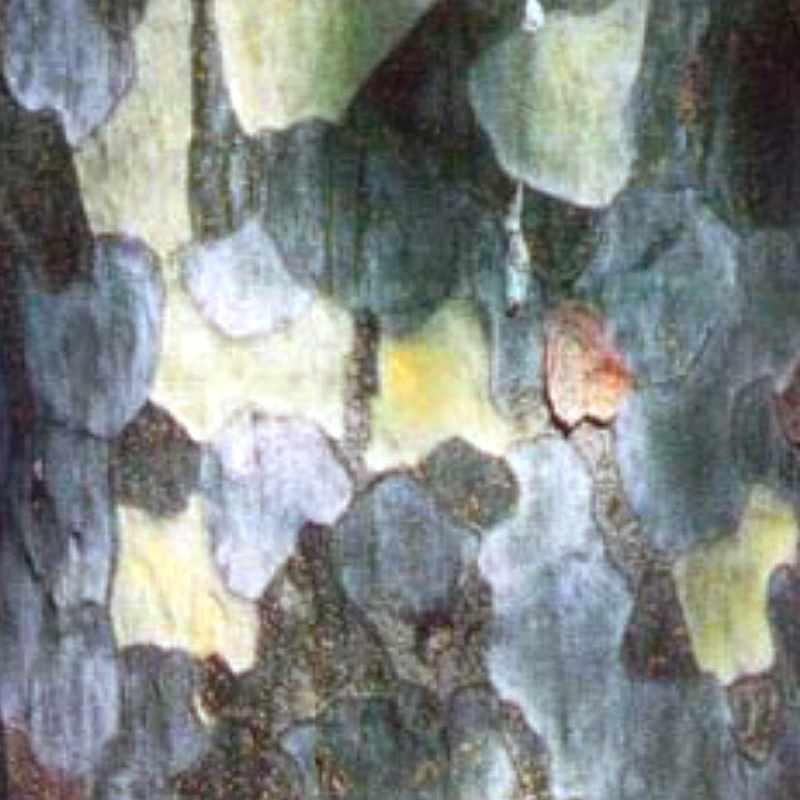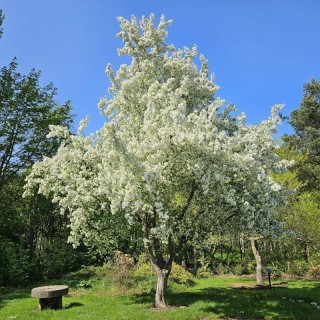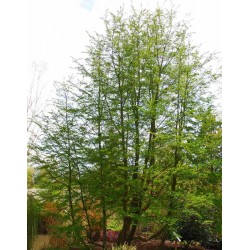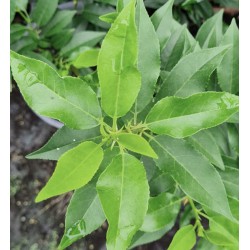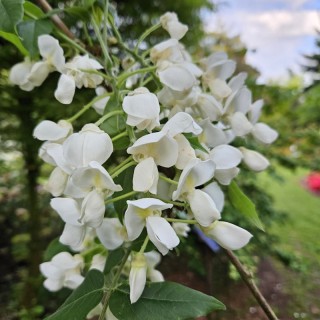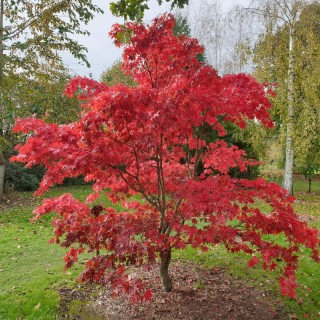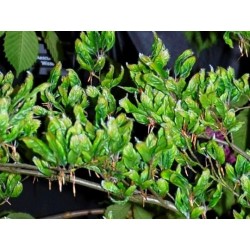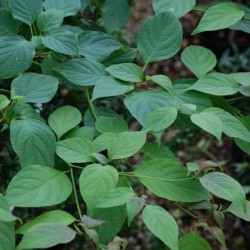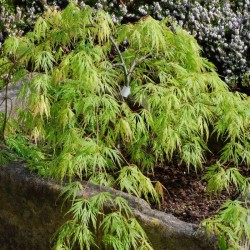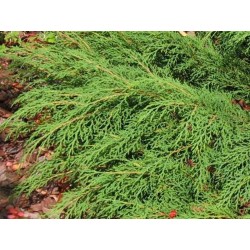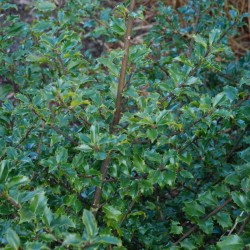- Home
- Offer - up to 30% off Selected Plants
- Trees & Shrubs
- Abelia
- Abeliophyllum
- Acer
- Acradenia
- Aesculus
- Ageratina
- Alnus
- Amelanchier
- Amelasorbus
- Amorpha
- Aralia
- Arbutus
- Aronia
- Asimina
- Atherosperma
- Aucuba
- Berberis
- Betula
- Brachyglottis
- Buddleja
- Buxus
- Callicarpa
- Calycanthus
- Camellia
- Caragana
- Carpinus
- Carya
- Caryopteris
- Catalpa
- Ceanothus
- Celtis
- Cephalanthus
- Ceratostigma
- Cercidiphyllum
- Cercis
- Chaenomeles
- Chimonanthus
- Chionanthus
- Chitalpa
- Choisya
- Cistus
- Cladrastis
- Clerodendrum
- Clethra
- Cleyera
- Colquhounia
- Coprosma
- Cornus
- Correa
- Corylopsis
- Corylus
- Cotinus
- Cotoneaster
- Crataegus
- Crinodendron
- Cytisus
- Daphne
- Davidia
- Decaisnea
- Desfontainia
- Deutzia
- Dichroa
- Diervilla
- Dipelta
- Dipteronia
- Disanthus
- Distylium
- Drimys
- Elaeagnus
- Eleutherococcus
- Embothrium
- Emmenopterys
- Enkianthus
- Escallonia
- Eucalyptus
- Eucryphia
- Euonymus
- Exochorda
- Fagus
- Fatsia
- Ficus
- Firmiana
- Forsythia
- Fothergilla
- Franklinia
- Fuchsia
- Gardenia
- Garrya
- Gaultheria
- Gleditsia
- Griselinia
- Gymnocladus
- Hakea
- Halesia
- Halimodendron
- Hamamelis
- Hebe
- Hedera
- Heptacodium
- Hibiscus
- Hippophae
- Hoheria
- Holodiscus
- Hovenia
- Hydrangea
- Hypericum
- Ilex
- Illicium
- Indigofera
- Itea
- Jasminum
- Juglans
- Kalopanax
- Koelreuteria
- Kolkwitzia
- Laburnum
- Laurus
- Lavandula
- Leptospermum
- Lespedeza
- Leucothoe
- Leycesteria
- Ligustrum
- Lindera
- Liquidambar
- Liriodendron
- Lonicera
- Luma
- Maackia
- Maclura
- Maddenia
- Magnolia
- Mahoberberis
- Mahonia
- Malus
- Melliodendron
- Metrosideros
- Mitraria
- Morus
- Myrtus
- Nandina
- Neillia
- Neoshirakia
- Nothofagus
- Nyssa
- Olearia
- Osmanthus
- Ostrya
- Oxydendrum
- Ozothamnus
- Pachysandra
- Paeonia
- Parrotia
- Parrotiopsis
- Paulownia
- Perovskia
- Phellodendron
- Philadelphus
- Phillyrea
- Phormium
- Photinia
- Phymosia
- Physocarpus
- Pieris
- Pistacia
- Pittosporum
- Platanus
- Platycrater
- Poliothyrsis
- Poncirus
- Populus
- Potentilla
- Prunus
- Pseudocydonia
- Pseudopanax
- Pseudowintera
- Ptelea
- Pterocarya
- Pterostyrax
- Pyracantha
- Pyrus
- Quercus
- Rehderodendron
- Rhamnus
- Rhaphiolepis
- Rhaphithamnus
- Rhododendron
- Rhus
- Ribes
- Robinia
- Romneya
- Rostrinucula
- Rubus
- Ruscus
- Salix
- Sambucus
- Sapium
- Sarcococca
- Sassafras
- Sinocalycanthus
- Sinojackia
- Skimmia
- Sophora
- Sorbaria
- Sorbus
- Spiraea
- Stachyurus
- Staphylea
- Stephanandra
- Stewartia
- Styrax
- Sycoparrotia
- Sycopsis
- Syringa
- Tamarix
- Tetracentron
- Tetradium
- Tilia
- Toona
- Trachycarpus
- Trochodendron
- Ugni
- Ulmus
- Vaccinium
- Viburnum
- Vinca
- Vitex
- Weigela
- Xanthoceras
- Zanthoxylum
- Zelkova
- Zenobia
- Conifers
- Climbers
- Herbaceous
- Acanthus
- Achillea
- Actaea
- Aegopodium
- Agapanthus
- Ajuga
- Alchemilla
- Anchusa
- Anemone
- Aralia
- Artemisia
- Arum
- Aster
- Astrantia
- Bergenia
- Brunnera
- Campanula
- Centaurea
- Cephalaria
- Crocosmia
- Dicentra
- Dierama
- Diplarrena
- Disporum
- Echinacea
- Epimedium
- Eryngium
- Eupatorium
- Euphorbia
- Galega
- Geranium
- Geum
- Helenium
- Helianthus
- Helleborus
- Hemerocallis
- Hemiboea
- Heuchera
- Hosta
- Inula
- Iris
- Kirengeshoma
- Kniphofia
- Lamium
- Libertia
- Ligularia
- Lysimachia
- Lythrum
- Monarda
- Nepeta
- Paeonia
- Penstemon
- Persicaria
- Phygelius
- Physalis
- Polemonium
- Pulmonaria
- Rodgersia
- Rudbeckia
- Scopolia
- Sedum
- Symphytum
- Thalictrum
- Tiarella
- Tricyrtis
- Verbena
- Veronica
- Veronicastrum
- Ferns
- Grasses
- Gift Vouchers
- All Plants currently in stock
- Plant Finder (Filter Plants by size, features, etc)
- Popular Categories
- About us
- About our Gardens
- Delivery
- Address & Opening Times
-
MenuBack
-
Trees & Shrubs
-
-
Conifers
-
-
Climbers
-
-
Herbaceous
-
-
Ferns
-
-
-
-
-
2-1
-
-
-
Grasses
-
- Gift Vouchers
-
Popular Searches
-
-
-
Newly listed plantsRecently added to our website
-
-
10% off website orders over £30 & free delivery for orders over £60*
10% off website orders over £30
& free delivery for orders over £60*
Pinus bungeana
(Lacebark Pine) A lovely rare Chinese pine, Pinus bungeana has cream, charcoal and grey patterned bark on mature specimens and needles which are very dark green in colour.
Please keep in mind that Pinus bungeana are absolutely not for instant gratification as it is exceptionally slow growing for at least the first ten years or so and therefore only suitable for very patient gardeners!
Delivery Options
(For any number of plants sent by courier)
Standard: £6.95* | Priority: £15 | Click & Collect |
*Surcharges apply for Highlands & Islands.
Delivery Options
(For any number of plants sent by courier)
Standard: £6.95*
Delivered in 2-3 working days
Priority: £15
Shipped ASAP
Click & Collect: free
*Surcharges apply for Highlands & Islands.
A lovely rare Chinese pine, Pinus bungeana has cream, charcoal and grey patterned bark on mature specimens and needles which are very dark green in colour. There are remarkable examples of this slow-growing pine throughout Northern & Eastern China with fine specimen trees in the Forbidden City.
- Position: Full sun.
- Soil: Well drained, fertile soil.
- Hardiness: Hardy.
- Rate of Growth: Very slow.
- Habit: Pinus bungeana eventually grows to be a medium sized, branching tree.
- Height: up to 15 m (50 ft) in the U.K.
- Spread: 10 m (32 ft).
- Notes: Of all the plants we offer, Pinus bungeana has perhaps, the most exquisite bark, but it can take many years to develop fully (at least 10 years). A specimen in our own garden has reached a height of 2.5 m (8 ft) after 14 years.
Further Information
Of all the trees planted in our arboretum this will be the slowest to mature, but in many years time will perhaps rank as the most lovely. It often grows as a multi-stemmed tree and has breathtaking bark which becomes a marbled patchwork of grey-green, white, yellow, purple, brown and green when mature.
Pinus bungeana was first described in the west by Dr. Bunge in 1831 who found it planted round Buddhist Temples near Beijing. It grows wild in the mountains west of Beijing and southwards to Hupeh. Robert Fortune introduced it to the west in 1846. He later collected large quantities of seed and in 1864 advertised seed in the Gardener's Chronicle at 25 shillings an ounce, (£1.25p).
Although perfectly hardy in Britain it is very slow growing and prefers a warm site. The photograph above is of the bark of a beautiful old specimen growing in the Royal Botanic Gardens, Kew that is now about 50 feet high. Very old plants in China may reach 80 feet or so.
- How Much Sun
- Full Sun
- Eventual Size
- Tree - Medium (8m - 15m)
- Growing Conditions
- Soil: Dry/Sandy, Soil: Acid, Soil: Not Fussy, Soil: Alkaline
- Special Features
- Evergreen, Ornamental Bark, Rare and Unusual



















